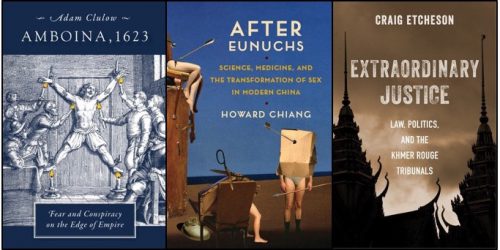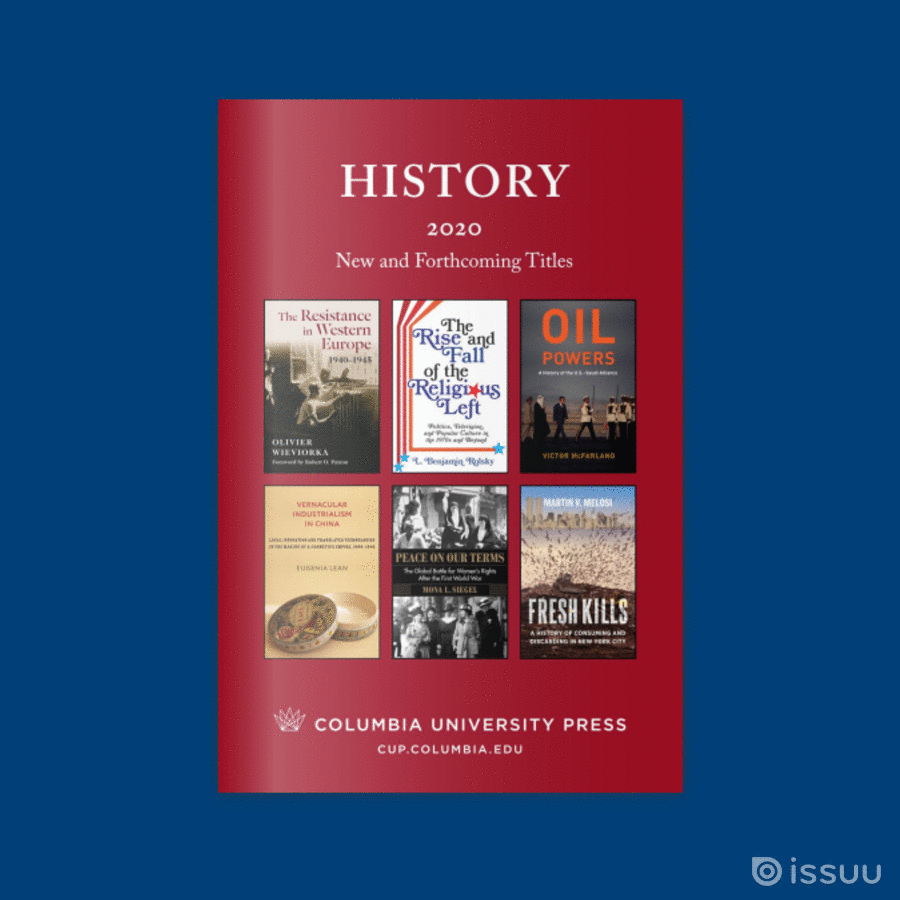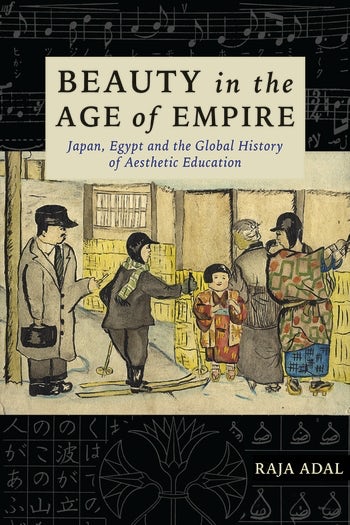Join Caelyn Cobb on a Tour of Our New Books in Asian History and Politics!

Hi—happy Friday! I’m Caelyn Cobb, editor for global politics and global history. I acquire in all things global and international, but I handle all the incredible scholarship about Asia in these fields as well. We have several new releases that I can’t wait to share with you all.

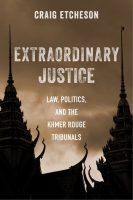 It was an absolute privilege to work on Sandra Fahy’s newest book Dying for Rights: Putting North Korea’s Human Rights Abuses on the Record, a comprehensive chronicle of the lived experience of human rights abuses in North Korea. The copyeditor wrote to us to say that they’ve never worked on a more moving book in their career, and I agree with them. Sandra collects together stories of every conceivable kind of rights violation in the country, along with stories of resistance and her own work with activist groups on the peninsula. It’s a great book, and I hope you get a chance to read it.
It was an absolute privilege to work on Sandra Fahy’s newest book Dying for Rights: Putting North Korea’s Human Rights Abuses on the Record, a comprehensive chronicle of the lived experience of human rights abuses in North Korea. The copyeditor wrote to us to say that they’ve never worked on a more moving book in their career, and I agree with them. Sandra collects together stories of every conceivable kind of rights violation in the country, along with stories of resistance and her own work with activist groups on the peninsula. It’s a great book, and I hope you get a chance to read it.
Also in this vein is Craig Etcheson’s book Extraordinary Justice: Law, Politics, and the Khmer Rouge Tribunals. Craig is an expert on transitional justice and was on the ground for the reconciliation process in Cambodia. This book is both history and political analysis, and a significant, landmark work in the study of postconflict justice.
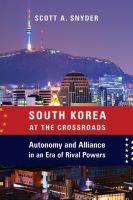
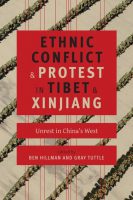 If you’re teaching Asian politics, there are some timely books out in paperback for you to consider. From the Council on Foreign Relations series, I recommend Scott Snyder’s South Korea at the Crossroads: Autonomy and Alliance in an Era of Rival Powers, Gardner Bovingdon’s The Uyghurs: Strangers in Their Own Land, and Ben Hillman and Gray Tuttle’s collection, Ethnic Conflict and Protest in Tibet and Xinjiang: Unrest in China’s West. We also have a new (sixth!) edition of Warren Cohen’s America’s Response to China that came out this fall. Is there something on my list that you’d like to use in a class but find it’s only in hardback? Drop me a line to let me know, and I’ll share your thoughts with our team.
If you’re teaching Asian politics, there are some timely books out in paperback for you to consider. From the Council on Foreign Relations series, I recommend Scott Snyder’s South Korea at the Crossroads: Autonomy and Alliance in an Era of Rival Powers, Gardner Bovingdon’s The Uyghurs: Strangers in Their Own Land, and Ben Hillman and Gray Tuttle’s collection, Ethnic Conflict and Protest in Tibet and Xinjiang: Unrest in China’s West. We also have a new (sixth!) edition of Warren Cohen’s America’s Response to China that came out this fall. Is there something on my list that you’d like to use in a class but find it’s only in hardback? Drop me a line to let me know, and I’ll share your thoughts with our team.
My list in Asian history has been exceptionally robust this past year. I wish I could highlight everything in the category that’s come out recently! China specialists will be excited to see Robert Culp’s The Power of Print in Modern China: Intellectuals and Industrial Publishing from the End of Empire to Maoist State Socialism,
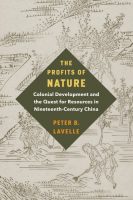 a fascinating history of book-making and bookselling in Republican China from the Studies of the Weatherhead East Asian Institute, Columbia University series. Debuting this month is another excellent history of China, The Profits of Nature: Colonial Development and the Quest for Resources in Nineteenth-Century China, by Peter Lavelle. This book looks at the environmental and colonial history of China’s borderlands during the Qing empire. I also encourage you to check out Max Oidtmann’s Forging the Golden Urn, which won the E. Gene Smith Inner Asia Book Prize from the Association for Asian Studies (AAS) this year, and Ori Sela’s China’s Philological Turn, which earned an honorable mention for the AAS Joseph Levenson Pre-1900 Book Prize.
a fascinating history of book-making and bookselling in Republican China from the Studies of the Weatherhead East Asian Institute, Columbia University series. Debuting this month is another excellent history of China, The Profits of Nature: Colonial Development and the Quest for Resources in Nineteenth-Century China, by Peter Lavelle. This book looks at the environmental and colonial history of China’s borderlands during the Qing empire. I also encourage you to check out Max Oidtmann’s Forging the Golden Urn, which won the E. Gene Smith Inner Asia Book Prize from the Association for Asian Studies (AAS) this year, and Ori Sela’s China’s Philological Turn, which earned an honorable mention for the AAS Joseph Levenson Pre-1900 Book Prize.
 People often ask me what I’m looking to publish in the history category. The thing I get the most excited about these days: global Asias. I have a series with Cemil Aydin, Dominic Sachsenmaier, and Tim Nunan called Columbia Studies in International and Global History. We are very interested in non-Western approaches to global history. Case in point? Raja Adal’s Beauty in the Age of Empire: Japan, Egypt, and the Global History of Aesthetic Education, which gives a global history of aesthetic education through the lens of how the tradition globalized on the edges of empire.
People often ask me what I’m looking to publish in the history category. The thing I get the most excited about these days: global Asias. I have a series with Cemil Aydin, Dominic Sachsenmaier, and Tim Nunan called Columbia Studies in International and Global History. We are very interested in non-Western approaches to global history. Case in point? Raja Adal’s Beauty in the Age of Empire: Japan, Egypt, and the Global History of Aesthetic Education, which gives a global history of aesthetic education through the lens of how the tradition globalized on the edges of empire.
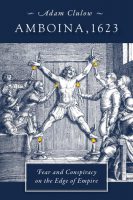
 Amboina, 1623: Fear and Conspiracy on the Edge of Empire, by Adam Clulow, is another global Asias title I’m really excited about. It puts a conspiracy from colonial southeast Asia, where Dutch officials executed Japanese sailors for their alleged role in helping the English undermine their trade in the region, into the broader global and colonial context of the era. Plus, Clulow created an innovative teaching tool based on the documents he compiled for this book—I encourage you to check it out!
Amboina, 1623: Fear and Conspiracy on the Edge of Empire, by Adam Clulow, is another global Asias title I’m really excited about. It puts a conspiracy from colonial southeast Asia, where Dutch officials executed Japanese sailors for their alleged role in helping the English undermine their trade in the region, into the broader global and colonial context of the era. Plus, Clulow created an innovative teaching tool based on the documents he compiled for this book—I encourage you to check it out!
I also encourage you to check out these new in paperback books on Asian history. After Eunuchs: Science, Medicine, and the Transformation of Sex in Modern China by Howard Chiang explores the ways the introduction of Western biomedical sciences transformed normative meanings of gender, sexuality, and the body in China. In The Merchant’s Tale: Yokohama and the Transformation of Japan, Simon Partner uses the story of an ordinary merchant farmer as a vantage point onto sweeping social transformation and its unwitting agents. Partner’s history of Yokahama as a vibrant meeting place humanizes the story of Japan’s revolutionary 1860s and their profound consequences. Finally, in Global Entanglements of a Man Who Never Traveled: A Seventeenth-Century Chinese Christian and His Conflicted Worlds, Dominic Sachsenmaier explores the mid-seventeenth-century world through the lens of Zhu Zongyuan’s life.
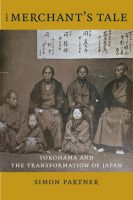 One wild thing about working in publishing is that you’re constantly living in the future. We are always planning what the list is going to look like a year from now. With new books, it could be several years before a conversation turns into a proposal that eventually turns into a real book you can hold in your hands. At conferences, when folks ask me what I’m excited about, they usually want to hear about new releases. But my mind is always buzzing with the exciting books that I know are yet to come. So let’s give a shoutout to some of the forthcoming Asian history and politics books that I’ve been thinking about lately! All of these are available for preorder on our website.
One wild thing about working in publishing is that you’re constantly living in the future. We are always planning what the list is going to look like a year from now. With new books, it could be several years before a conversation turns into a proposal that eventually turns into a real book you can hold in your hands. At conferences, when folks ask me what I’m excited about, they usually want to hear about new releases. But my mind is always buzzing with the exciting books that I know are yet to come. So let’s give a shoutout to some of the forthcoming Asian history and politics books that I’ve been thinking about lately! All of these are available for preorder on our website.
 June 2020: Asian Place, Filipino Nation: A Global Intellectual History of the Philippine Revolution, 1887–1912, by Nicole CuUnjieng Aboitiz (Columbia Studies in International and Global History), reconnects the Philippine Revolution to the histories of Southeast and East Asia through an innovative consideration of its transnational political setting and regional intellectual foundations.
June 2020: Asian Place, Filipino Nation: A Global Intellectual History of the Philippine Revolution, 1887–1912, by Nicole CuUnjieng Aboitiz (Columbia Studies in International and Global History), reconnects the Philippine Revolution to the histories of Southeast and East Asia through an innovative consideration of its transnational political setting and regional intellectual foundations.
J une 2020: To the End of Revolution: The Chinese Communist Party and Tibet, 1949-1959, by Xiaoyuan Liu, draws on unprecedented access to the archives of the Chinese Communist Party to offer a groundbreaking account of Beijing’s evolving Tibet policy during the critical first decade of the People’s Republic.
une 2020: To the End of Revolution: The Chinese Communist Party and Tibet, 1949-1959, by Xiaoyuan Liu, draws on unprecedented access to the archives of the Chinese Communist Party to offer a groundbreaking account of Beijing’s evolving Tibet policy during the critical first decade of the People’s Republic.
July 2020: Japan’s New Regional Reality: Geoeconomic Strategy in the Asia-Pacific, by Saori Katada (Contemporary Asia and the World), offers a comprehensive analysis of Japan’s geoeconomic strategy that reveals the country’s role in shaping regional economic order in the Asia-Pacific.
There are always more coming, so be sure to sign up for our history and politics newsletters to stay up to date.
I hope you are all staying inside and staying well. You can always find me on Twitter (@caelyncobb), even more so now that I’m home keeping a social distance from everyone. Keep in touch, and I’ll see you next year at the AAS booth.
Oh! And remember to stop by tomorrow at 9:00 AM EDT to hear about our Asian studies books in translation.




